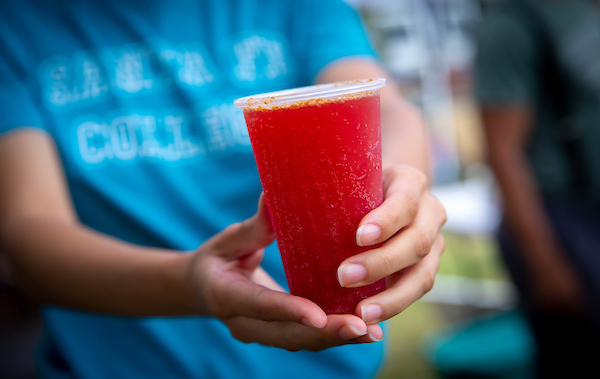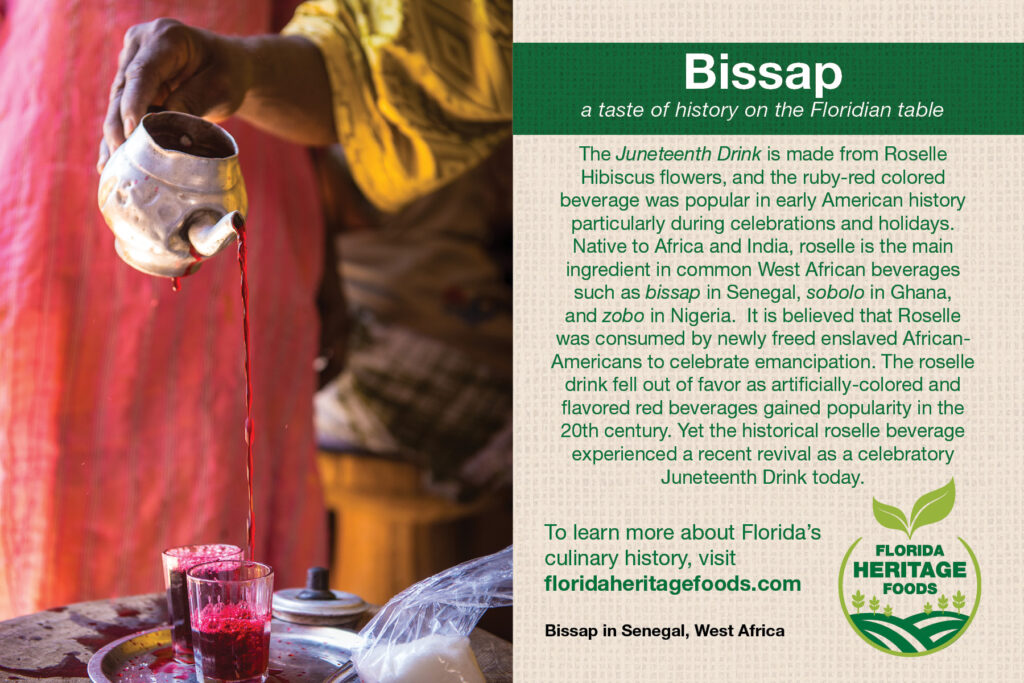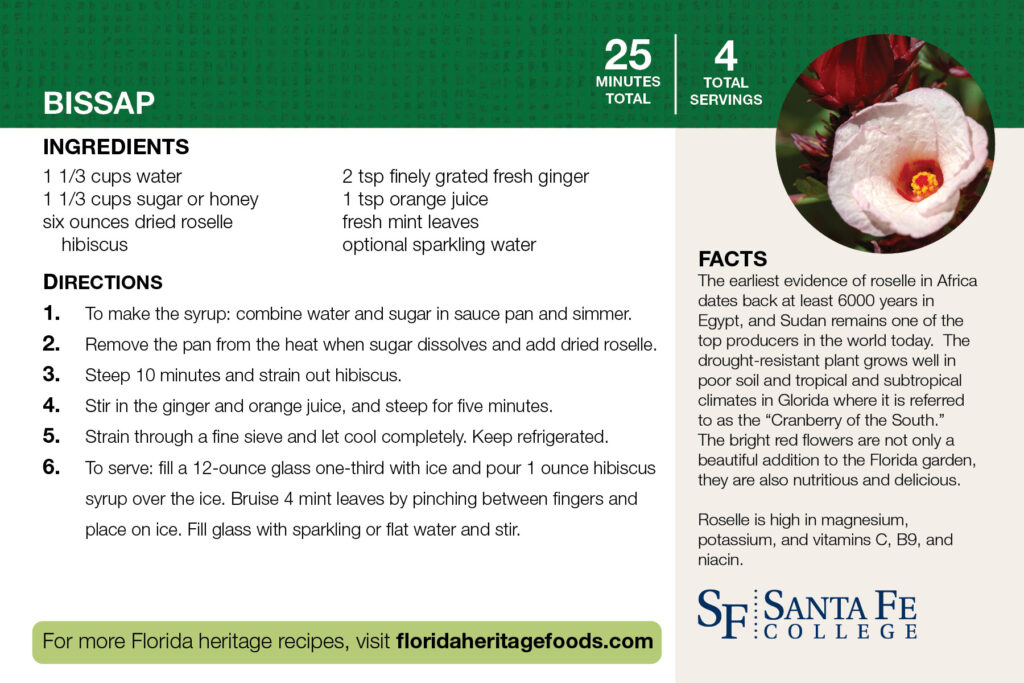The Juneteenth Drink is made from Roselle Hibiscus flowers, and the ruby-red colored beverage was popular in early American history particularly during celebrations and holidays. Native to Africa and India, roselle is the main ingredient in common West African beverages such as bissap in Senegal, sobolo in Ghana, and zobo in Nigeria. It is believed that Roselle was consumed by newly freed enslaved African-Americans to celebrate emancipation. The roselle drink fell out of favor as artificially-colored and flavored red beverages gained popularity in the 20th century. Yet the historical roselle beverage experienced a recent revival as a celebratory Juneteenth Drink today.

The roselle plant, Hibiscus sabdarrifa, is native to Africa and India, and the flowers and leaves have been consumed for centuries. The plant was brought to the Americas during the colonial period and the enslavement of African people during the 16-17th centuries. It was cultivated along with other crops from Africa such as okra and black-eye peas, and it was cultivated throughout tropical and subtropical regions. Enslaved Africans created a roselle beverage similar to those widely consumed in West Africa such as bissap in Senegal, sobolo in Ghana, and zobo in Nigeria. The drink became prominent throughout the southern U.S. until the 20th century when it lost favor to artificially colored and flavored sweetened drinks such as ‘Kool-aid.’
The red Roselle drink was a common beverage in southern plantations where it was consumed by enslaved Africans and eventually made its way into diverse households throughout the South. Beverages were made by steeping the calyx of the plant (the plump cup-like formation at the base of the flower that contains a seed) in hot water and optional sweeteners and spices. It was often associated with celebrations, such as Christmas. It is believed that upon learning of emancipation, enslaved Africans celebrated emancipation with Roselle tea, and it remains a popular celebratory beverage for Juneteenth celebrations in the U.S. today. However, the drink never lost favor in the Caribbean where it is known as ‘sorrell.’ It remains one of the most consumed beverages in Jamaica, and it is known as agua de Jamaica, jugo de Jamaica, or rosa de Jamaica throughout Latin America.



Santa Fe College Partnered with Multiple Organizations in a Collaborative Effort to Bring Awareness of the Heritage Plants In Florida.
BY CULTURAL HISTORY
BY GROWING SEASON
DROUGHT TOLERANT PLANTS
Commitment to Equal Access and Equal Opportunity
Santa Fe College is committed to an environment that embraces diversity, respects the rights of all individuals, is open and accessible, and is free of harassment and discrimination. For more information, visit sfcollege.edu/eaeo or contact equity.officer@sfcollege.edu.
SACSCOC Accreditation Statement
Santa Fe College is accredited by the Southern Association of Colleges and Schools Commission on Colleges (SACSCOC). For more information, visit sfcollege.edu/sacscoc.
